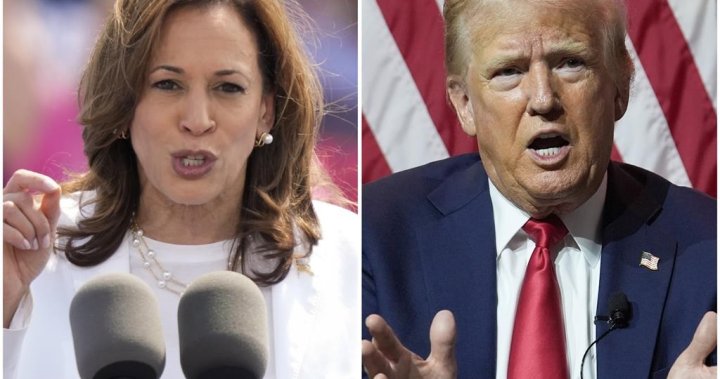The upcoming U.S. presidential election between Vice-President Kamala Harris and Donald Trump may come down to the issue of immigration, which will have implications for Canada. Polling has shown that a majority of Americans want to decrease immigration levels, despite most also agreeing that immigration is overall good for the country. Trump has made tackling unauthorized immigration a key point in his campaign, while Harris supports more conservative policies compared to past Democratic platforms. Canada has recently announced a 21 percent reduction in the number of new permanent residents entering the country by next year, signaling a shift in immigration policies in North America.
Harris’ immigration platform focuses on continuing limits on asylum and supporting bipartisan immigration reform. Biden’s recent proclamation has barred migrants from being granted asylum when the southern border is overwhelmed, reflecting these priorities. Harris has indicated that she will bring back the failed immigration reform bill and pursue an earned pathway to citizenship. On the other hand, Trump’s policies are much more restrictive, with plans to launch large deportation efforts and end birthright citizenship. He has also suggested using the National Guard and federal troops to assist in immigration enforcement.
A Harris presidency would likely involve collaboration with Canada to address shared immigration issues, while a Trump administration would likely be more combative. Canada has faced increased pressure to reduce migration into the U.S. through the northern border, where migrant encounters have spiked. A Harris presidency may prompt Canada to adopt stricter border and immigration screening measures, but most of the conversations are expected to happen through diplomatic channels. Conversely, Republicans in Congress could pressure Harris and Canada to take a more hardline approach on immigration.
Trump’s policies, which primarily focus on border security, could lead to far-reaching effects, such as an increase in undocumented immigrants fleeing to Canada. Changes under the Trump administration to temporary protected status for Haitians helped spark an influx of migrants claiming asylum at the Canada-U.S. border. Experts have warned that a mass deportation of 10 million people could lead to a loss of nearly one percent of Canada’s GDP, as many temporary foreign workers in Canada could be affected. Ultimately, Canada will need to work with whatever U.S. administration comes next to address immigration issues that are becoming increasingly complex.
In conclusion, the upcoming U.S. election will have a significant impact on immigration policies in North America, with implications for Canada. While Harris supports a more moderate approach to immigration, Trump’s policies are much more restrictive. A Trump administration could lead to increased migration to Canada and pressure the country to strengthen border security measures. Collaboration between the U.S. and Canada will be crucial in addressing shared immigration challenges and ensuring a balanced approach to migration in the future.













